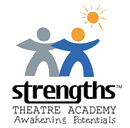5 Important News Reading Skills to Start as a News Anchor
Reading the news off an elevated monitor may sound simple, however, it’s in reality surprisingly confounded. Anchors and journalists need to build up a reading style that appears to be regular, however, isn’t excessively quick, excessively moderate, too nuanced, excessively emphasized, too piercing, excessively peaceful, or some other outrageous. News reading skills like a professional news anchor requires ability, practice, and preparation.
- Discipline brings about Promising Results
The most ideal approach to begin is to work on reading news stories that you’ve composed for class. On the off chance that your school has an understudy TV station, doing some on-air work there is additionally useful, as you’ll presumably have the capacity to get a chronicle of it a while later. You can likewise record yourself with different applications on your telephone.
It’s difficult to be objective about your very own reading, so it’s a smart thought to ask others their genuine sentiments. Does your reading sound normal? Is it difficult to comprehend in any way, shape, or form? Would your audience members need to hear you read more?
Visit: tips to improve communication skills
- Things to Work On
Speed is one significant thought when reading the news. In the event that you read too gradually, watchers may get exhausted and anxious and think about changing the channel. In the event that you read excessively quickly, watchers may experience considerable difficulties getting you. Regularly, news anchors read somewhere in the range of 150 and 175 words for each moment, and a few stations may time new correspondents or anchors to get a pattern for that person’s standard reading speed.
In the event that you find you’re talking excessively quick, it might be useful to focus on articulating obviously — in some cases this enables individuals to back off. Obviously, individuals regularly talk quicker when they’re on edge, and your first time reading a story on-air can be nerve-wracking, so in some cases, the issue settles itself after you’ve essentially invested more energy carrying out the responsibility.
Visit: gender equality in workplace
- Sounding Natural and Conversational:
Another regular issue understudies face when figuring out how to read the news is figuring out how to seem as though they’re not reading — something that is a lot harder than it sounds!
You can rehearse by reading a news story and imagining that you’re telling it to a companion. You would prefer not to extemporize or change the wording (which might be more formal than the manner in which you typically talk), yet you should generally talk conversationally. This can be troublesome, particularly in case you’re additionally endeavoring to talk all the more gradually or articulate all the more plainly, however sounding regular is a significant part of reading the news.
- Accents and Dialects:
There is a wide range of “accents” and regionalisms related to American English. Contingent upon where you grew up, others may see a highlight. On the off chance that you learned English as a second language, you may have a highlight related to your first language.
While there is no single right emphasis for American English, most telecasters incline toward correspondents talk with a General American articulation (most regular in the mid-west and on the west coast)- or as near it as you can sensibly get. A few people already do this, yet for those with a solid highlight, winding up more phonetically nonpartisan can be troublesome and requires news reading practice.
On the off chance that you discover you have a solid highlight, you can tune in to correspondents or anchors who read the national news-those reading to the whole nation must be the most etymologically impartial-and work on talking like them. At times it’s useful to hear one out sentence, delay the chronicle, and rehash it a couple of times yourself, at that point hear it out once more.
Visit: personality development skills
- Altering Tone for Content
By and large, when you read you should sound decently peppy, yet not excessively in good spirits. Be that as it may, you’ll have to change your tone when reading dismal stories, similar to those including passings or genuine wounds.
Now and again backing off and talking all the more discreetly can enable you to pass on the earnestness of a tragic circumstance. This ought to stretch out to the entire story, including the journalist’s “standard out” and anchor labels.
Consequently, it’s additionally useful if makers can design substance to abstain from going legitimately from an incredibly dismal story to a glad one. There is a whole lot of nothing approach to progress from reading about a catastrophe to “In this way, I hear we had an energizing day in the realm of games! Reveal to us progressively about that, Bob!” If you can wedge an increasingly unbiased story or a business break between miserable stories and glad ones, you’ll be doing both the anchor and the viewers’ major support for news reading skills.
Originally published at https://strengthstheatr.livejournal.com.
